Newfoundland dog is a breed of a large dog. These dogs are mostly brown, black or black and white. There are also so-called Landseer Newfoundland dogs, who have brown or black head with white and brown or black body. Besides their size, Newfoundland dogs are known by their huge strength and loyalty. Due to their natural qualities, Newfs are often trained for lifesaving, especially in water.
How do Newfoundland dogs look like? Well, they can weight about 130 pounds (which is quite a lot for a dog) and their height is usually somewhere between 20 and 30 inches. Size of these dogs allows excellent lung capacity, especially for long distance swimming. Their coat is thick and straight, it has two layers and it’s water resistant. The outer coat is oily and quite long, while the undercoat is oily and soft. Newfoundland dogs have broad head and neck and their eyes sometimes seem to be small because of that. Life span of these dogs is about ten years.
Newfoundland dogs are called gentle giants, for their pure heart and calm nature. They don’t have special requests from their owners. When talking about their temperament, they are best known by their patience and intelligence. They don’t bark very often, but they are never afraid and they’ll always protect their family. These information are very important for their owners, as they need to pay attention to this while treating their Newfs. Newfoundland dogs should be considered to be almost equal family members. If someone has positive qualities that are special, it’s certain that he should get some respect for that. Newfs are also getting along very well with other animals and of course with humans as well. They are usually easy to train and even if their training seems to be a hard job sometimes, every second of your time that you spend on them is certainly good investment. They like to play very much,find out more about that here.
Newfoundland dogs don’t have a lot health treats. It should be mentioned that they’re prone to hereditary heart disease and it’s very important to mention that you shouldn’t let your Newf get fat, because they already have slow metabolism and they tend to more a bit slowly. Getting fat is very unhealthy for these dogs. Newfoundland dogs also drool, mostly after drinking water, but if you consider that they are breed of large dogs, you will find out that the drooling is something that can’t be avoided and it’s not that much scary either.
If you are interested in buying a Newfoundland dog, you should check couple of things before that. Like it was said, they are not quite active, so they don’t require large space for living. First of all, Newfoundland dogs like coldness more than heat and they like water, so you should have got place with water in it and shadow where the dog can feel well. Also, you should have leisure time to spend by taking your dog on a daily walk. It’s important for him, walking is good for everyone and you are preventing your Newf from becoming fat.
Owning a pet is certainly a good thing to do, but you should always be sure that both of you and your pet will be happy. It’s not important what kind of a pet you want to get, just always be informed well before doing so. The key in mutual happiness and pleasure is surely to be familiar with needs of the other side, it is quite similar like with humans. Newfoundland dog is certainly one of the dogs that doesn’t ask for too much, but he offers a lot.
 |
| Newfoundland dog |
The Newfoundland Dog | Newfoundland Puppies | Newfoundland Dog Pictures | The Newfoundland is a breed of dog that are large and have a fairly thick coat. Newfoundland dog was originally used as working dogs fatherly fishermen in the Dominion of Newfoundland. But at this time known as the Newfoundland breed rescue dog or a baby sitter.
Newfoundland dogs are very good at swimming, webbed feet allow Newfoundland dog can swim freely.
Newfoundland dog's coat color can be black, white, gray and brown. Newfoundland has a 60-70 kg body weight for male Newfoundland dog, and the female 45-55 kg. But the Newfoundland dog can also grow more than that.
Biggest Newfoundland Dog | Largest Newfoundland Dog | Big Newfoundland Dog Pictures | Huge Newfoundland Dog | Black Newfoundland Dog | White Newfoundland Dog | Newfoundland Puppies
 |
| Newfoundland dog |
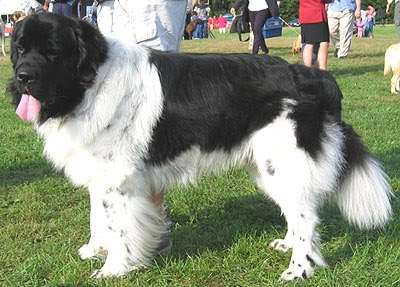 |
| Newfoundland dog |
 |
| Newfoundland dog |
 |
| Newfoundland dog |
 |
| Newfoundland Puppies |
 |
| Newfoundland dog |
 |
| Newfoundland Puppy dog |
 |
| Newfoundland Puppies dog Black And White |
 |
| Newfoundland Puppy Black And White |
 |
| Newfoundland Black Dog |
 |
| Newfoundland Dog |
 |
| Newfoundland Biggest Dog |
 |
| Newfoundland Dog Puppies |
 |
| Newfoundland Bigs Dog |
 |
| Newfoundland Bigs Black Dog |
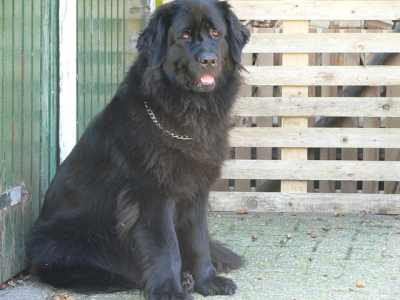 |
| Black Newfoundland Dog |
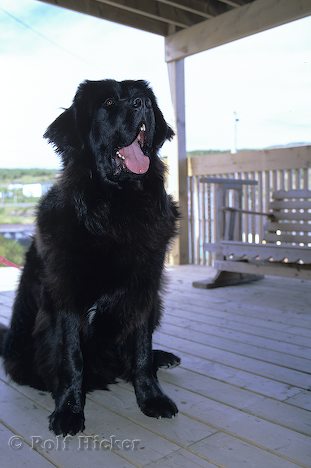 |
| Biggest Newfoundland Black Dog |
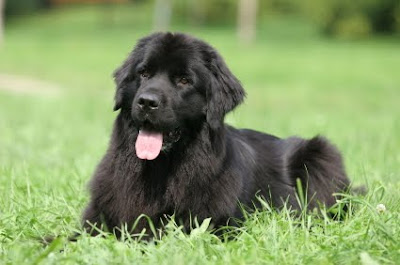 |
| Newfoundland Dog Pictures |
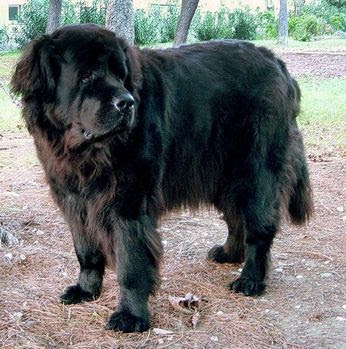 |
| Cute Newfoundland Dog |
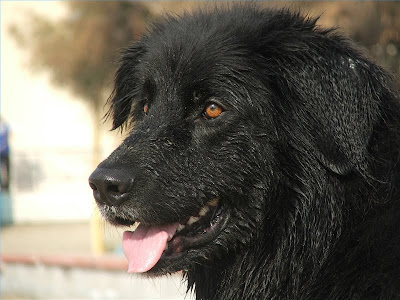 |
| Newfoundland Dog Face |
 |
| Newfoundland Dog |
 |
| Newfoundland Dog Bigs |
* Temprament
Newfoundland dogs have a calm nature and even soft, so it can close with the children. Newfoundland therefore often used as a playmate and guardian of children. With its large and strong energy dog to keep children well, such as keeping the child for not running on public roads, of course to be able to do that requires special training.
* Health Issues
Newfoundland dogs have some health problems. Newfoundlands are prone to hip dysplasia (a malformed ball and socket in the hip joint). They Also get Elbow dysplasia, and cystinuria (a hereditary defect That forms calculi stones in the bladder). Another genetic problem is subvalvular aortic stenosis. This is a common heart defect in Newfoundlands involving defective heart valves. SAS cans cause sudden death at an early age. Therefore, if your pet Newfoundland dog has health problems like that, it is better to immediately take your animal medicine.























No comments:
Post a Comment